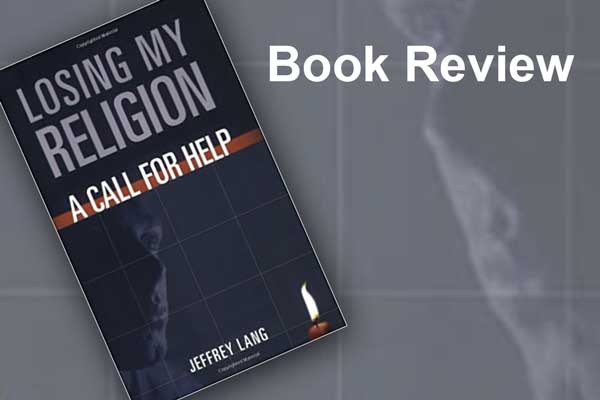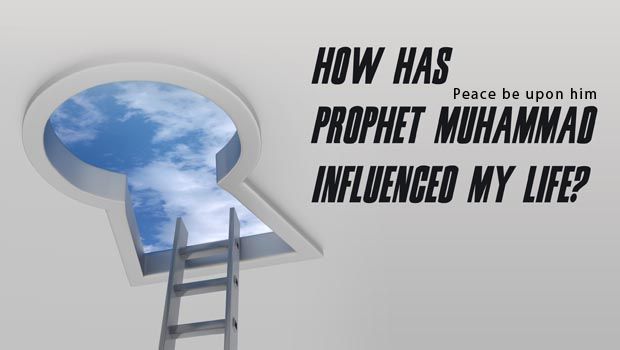Jeffrey Lang, Losing My Religion: A Call for Help (Beltsville, MD: Amana Publications, 2004). 504 pages. ISBN: 1-59008-027-0.
This article written for Message Int. and printed in the January/February 2005 adition
Jeffrey Lang’s latest book, Losing My Religion, is a bold attempt to shake the Muslim leadership in North America out of its deep slumber. As he makes clear throughout this call to action, the Muslim community is losing its grim battle to retain Muslim youth in its fold and is failing to attract new adherents.
When Lang chose Islam, his parents were just as rattled as many Muslim parents are when their children abandon their traditional upbringing by smoking pot, drinking alcohol, being jailed, or suddenly deciding to marry a non-Muslim. When Lang’s 9-year old daughter casually asked him: “Daddy, what would you do if I became a Christian someday?” he felt terribly disappointed about not making Islam a clear choice for everyone. His daughter continued: “I’m not really thinking about becoming Christian, Daddy, but I sometimes think it would be a lot easier not to be a Muslim.””
Why should a person follow Islam, a religion that makes many demands upon one’s life?
Lang’s book is a serious attempt to address this crucial question for both new immigrants as well as Americans who were born and raised as Muslims. Spread over 500 pages, the book has only three chapters and a two-anda-half page “Parting Remarks.” Lang appeals to activist American Muslim youths and converts to play their pivotal role of explaining to the world why Islam is the rational choice for creating God’s kingdom on Earth and for human salvation here and in the Hereafter.
Millions of Americans are seeking spiritual growth and fulfillment, for they are not satisfied with their birth religion. But they are afraid of Islam, for in their minds it is associated not with inner and outer peace, as the name implies, but with images of burning Twin Towers, suicide bombers, and irrational bloodthirsty killers who slaughter innocent captives.
Crucial to the survival of any religion is its members ability to retain its community’s children and attract new adherents. On both counts, Lang’ asserts that “the Muslim community in not doing at all well.” Muslim immigrants, as well as new reverts to Islam, face an uphill task in keeping their family members attached to Islam. The trickle of new converts has almost dried up, especially after 9/11. [NOTE: THIS CONTRADICTS YAHIYA EMERICK’S ASSERTION IN HIS ARTICLE THAT THERE ARE MORE NEW MUSLIMS AFTER 9/11 THAN BEFORE]
Lang’s major theme is “the disillusion of American Muslim youth.” Almost every Muslim family in North America can relate to Sohail’s tale of parental disillusionment. Most Muslim parents try to raise their children in the traditional manner: making sure that they can read the Qur’an;’ pray regularly; attend the week-end Islamic schools, camps, and conferences; and participate in the community’s social functions. However, this often creates a false sense of security, which causes them to be quite rattled when their glass menagerie shatters and their ideal Muslim children graduate into the real world, beyond parental oversight and supervision.
Large numbers of Muslims reverts, and spiritual seekers are forsaking the American Islamic community, a fact that causes Lang to warn: “Many of these will inevitably abandon the religion.”
The usual explanation offered by the community’s elders is peer pressure or the devastating effects of the American melting pot. However, they have little else to offer as a remedial antidote and are only remotely aware of what Lang calls “intellectual confrontation.” On the one hand, Islam is subtly and overtly demeaned by the media and anti-Islam websites, and, on the other, an extreme, virulent, and irrational interpretation of Islam has assumed center stage.
Lang finds that most North American mosques impose, in the name of Islam, traditions and beliefs of questionable necessity that obfuscate the fundamental message of God’s revelation to humanity. The overriding negative impression of Islam, flowing from within and without, is driving individuals away from the faith in droves. Instead of seeing Islam as a path to spiritual growth, enlightenment, and fulfillment, many disengaged Muslims see a stagnant, retrogressive, and patriarchal remnant of “a lagging culture, mired in meaningless controversies and hollow, lifeless formalism.”
He wants young American Muslims to respond rationally to Islam’s detractors and also to reassess the vast tradition that has come down to us in the name of Islam. They can do this, for they have been taught how to search, question, critique, and analyze, and, moreover, are willing to separate religion from culture. Thus, they can distinguish between Islam’s essentials and its time- and place-bound interpretations. His advice to them is:
“Always pursue the truth, for God is Truth, and always pray for and trust in His guidance … never forgetting that to Him, and Him alone you have surrendered –not to a tradition, or a school of thought, or a local community, or culture, or a scholarly legacy – and that your living, striving sacrifice and dying, all is for Allah.”
The book is a must-read for every Muslim who cares about Islam and Muslims, and for all those who wish to take God’s guidance to every corner of the globe. His language flows with life and vibrancy. This very fascinating and insightful book comes from a person who chose God over tradition, and rational behavior over blind faith.





